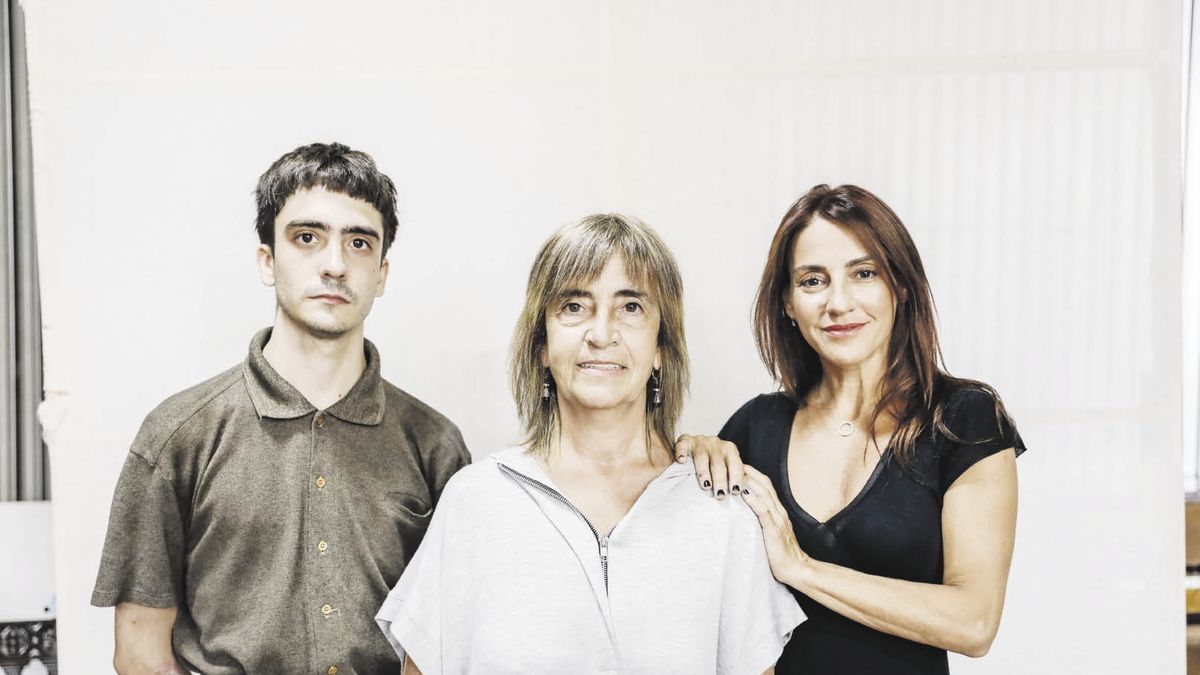Corina Fiorillo: There is no other option than the entire cast to get infected and start. Or that all works learn to have replacements. If you bet on the theatrical machinery and not on the protagonist, we should learn to support the work beyond a figure. We can all cover papers, there is something of the community rotation that was taking place in the pandemic. For example, in the Cervantes they work in parts, if one assistant gets infected, another comes.
Q.: The text was already done last year with other actresses and directors, what did you add?
C.F.: It is not a work with a fairy tale journey, it is a montage that has to do with the performative and testimonial. We divide the material into blocks as if they were small scenes so as not to think about the whole, which drowns you. The content is a lot. So the idea was to create with each block a sound universe that had to do with the content. Or with the contrast of content. There is a block when she talks about wanting to be decent women crossed by the demands of society, in which we put voices and children’s songs with the ‘rice pudding I want to get married’. There are the commands. That was the way to have fun and find theatricality in the content. When he talks about desires we got involved with the sound of sado, when he talks about what women who work in porn should do, we got involved with political speeches.
Q.: The works went from the María Guerrero to the esplanade of the National Library…
C.F.: It is a celebration, it seems to me more popular in the sense of a more massive arrival, but not in the sense of spectators because more spectators enter the large room, but insofar as they take over the public space, make a meeting. We clarify at the beginning that it is a text written 15 years ago, it was all transgressive, today there are some parts more than others and several are daily. There is something of the binary of the material that has to do with its time and I think that if it were written today it would not be so placed in that male-female opposition.
Q.: What do you think of the Corrientes street billboard, very focused on laughter and humor?
C.F.: I love to make people laugh but that’s not all. I happily directed Moliere’s ‘The Miser’ but there are many other themes. When I offered the commercial producers the play ´Like a bitch in a wasteland´, we did not find a place and we produced it ourselves. It is a very emotional work, which has to do with motherhood, with the decision of a necessary abortion and speaks of the second in which the woman is alone like an animal in her nature. But although it deserved production in every way, we did it ourselves and received some subsidies. Then Stolkiner from The Foreigner joined us, allowing us the room to rehearse. When I talk about production, I also talk about charging for rehearsals, a place to rehearse, a paid cast. I kneel before the artist, he puts everything without charging, more so in a pandemic. And going back to comedy, movies and series are allowed everything, why not theater?
Q.: What do you mean?
C.F.: There is a huge range of options, you see ´Fleebag´, ´Mad Men´, ´Successsion´, on the platforms there is very little comedy. One reads ´Faust´, contemporary authors, classics, why is there that limitation in theater? And the platforms and the books are paid.
Q.: The crisis of printed books is not new and the platforms cost much less monthly than the entrance to the theater.
C.F.: I think there is a limitation in theater or perhaps the interpretation of the box office is poorly done. There are so many factors that make a show work or not. Years ago, not so long ago, we staged ´King Lear´, ´Death of a Salesman´ or ´The Gronholm Method´, they are not comedies and they have been great successes.
Q.: But nothing guarantees success.
C.F.: Today you don’t want to take any risk, not even the officer. I directed ´El Principe de Archimedes´ which came out in the official and then went to the commercial and we did tours. I first took that material to a producer but he didn’t want it because he claimed that the work was about pedophilia. I told her that if the public came out talking about it, she would have failed as a director. I called the author and told him to trust and that we would do it in the official. When that producer in the big room of the Konex, full, told me ´how I was wrong´. One thing is the genre and another is the pain with which the public can identify. When I did ´Member of the jury´, the consecrating role of Silvina Bosco, about a married couple who wait for their daughter’s rapist to come out in order to castrate him, nothing could be more tremendous than that. I told the cast that for the first 40 minutes everyone was going to laugh. They looked at me strangely. Until Bosco entered as the mother and there everything was pain. But not only. There could be so much more to it than just pain.
Source From: Ambito
David William is a talented author who has made a name for himself in the world of writing. He is a professional author who writes on a wide range of topics, from general interest to opinion news. David is currently working as a writer at 24 hours worlds where he brings his unique perspective and in-depth research to his articles, making them both informative and engaging.




